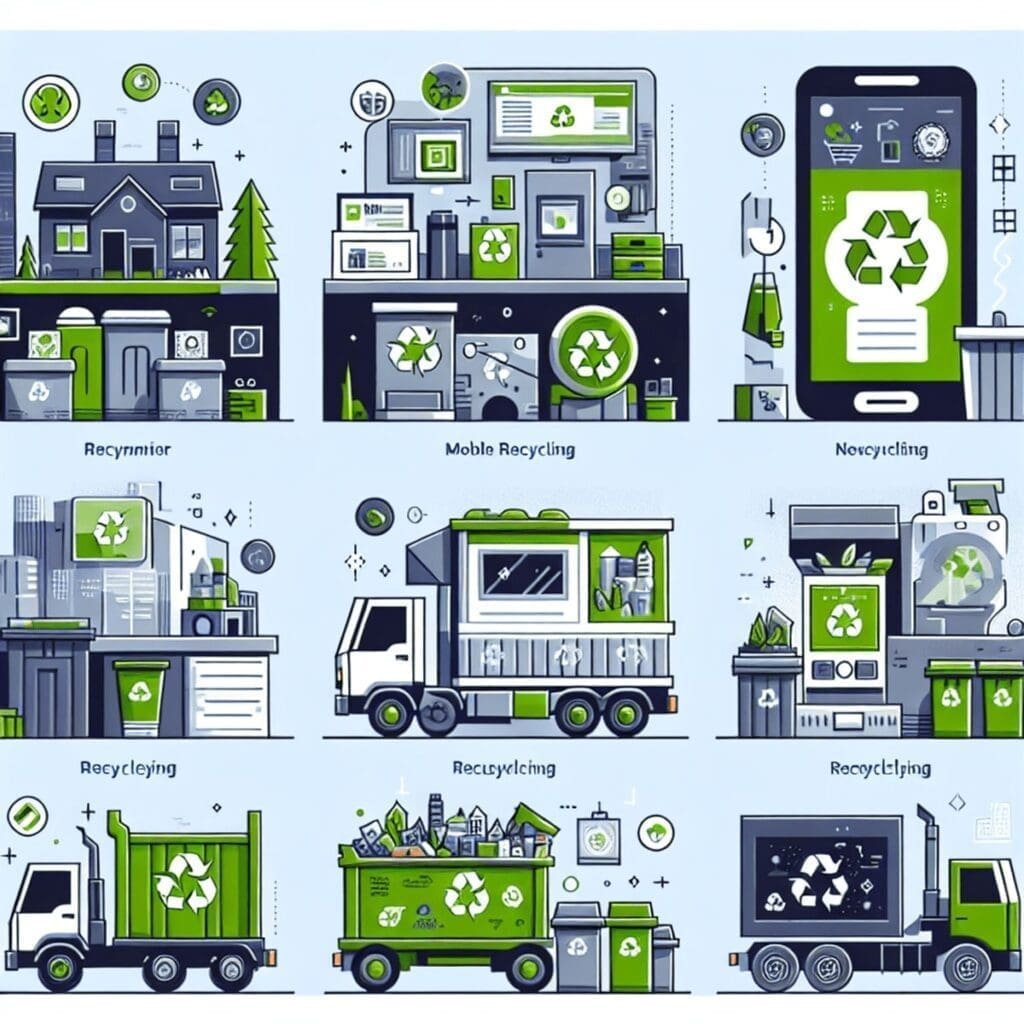
Introduction to American Recycled Clothing
American recycled clothing has become an important part of the sustainable fashion movement, offering a great alternative to traditional clothing options. In this article, we will thoroughly evaluate the credibility of American recycled clothing brands by looking at key factors such as where they get their materials, how they manufacture their products, how long-lasting they are, and what customers have to say. By examining these aspects, our goal is to give you a clear idea of whether American recycled clothing is truly authentic and trustworthy.
As more and more people are interested in sustainable fashion, there’s a growing demand for transparency in the industry. That’s why it’s essential to explore whether American recycled clothing is really legitimate – so that we can make informed and responsible fashion choices that prioritize ethics and the environment.
The Recycling Process in American Recycled Clothing Brands
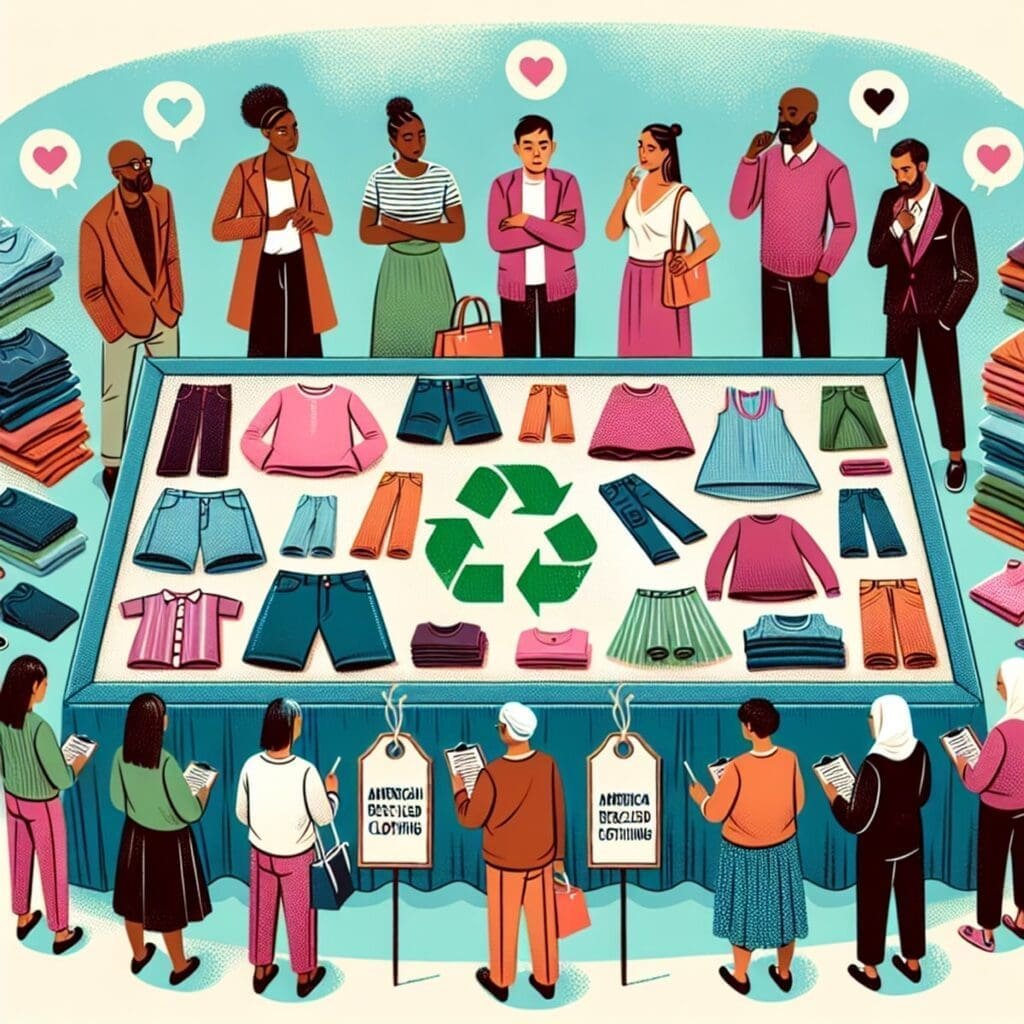
Recycling is an important part of the American recycled clothing industry. It allows materials to be reused and turned into new clothes. The process has several steps to ensure old fabrics become trendy and sustainable garments. Here’s an overview of how recycling works:
1. Collection
American recycled clothing brands gather used clothes and textiles from various sources like donation centers, thrift stores, and directly from people. This ensures a steady supply of materials for recycling (source).
2. Sorting
Once collected, the clothes undergo a meticulous sorting process based on their color, fabric type, and condition. This step is crucial because it helps determine which pieces can be reused immediately and which ones require further attention (source).
3. Cleaning
After sorting, the clothes go through a thorough cleaning process to eliminate any dirt, stains, or odors. Depending on the fabric and brand’s procedures, this could involve washing or dry cleaning (source).
4. Repairing and Refurbishing
Damaged or worn-out clothes are sometimes repaired or refreshed to extend their lifespan. This might involve patching holes, changing buttons or zippers, or altering the garment to give it a new style (source).
5. Refashioning
Leading American recycled clothing brands employ creative techniques and technologies to transform old clothes into new designs. They might cut and sew pieces together to create unique patterns or combine different fabrics for a modern look. This approach significantly reduces waste and contributes to a more circular economy (source).
6. Resale
Once these processes are complete, the recycled clothes are ready to be sold again to consumers who prioritize sustainable fashion. Before reaching the market, these items often undergo quality checks to ensure they meet standards. By carefully sorting, cleaning, repairing, refurbishing, and refashioning, American recycled clothing brands can turn unwanted clothes into trendy, eco-friendly pieces that align with the growing demand for sustainable fashion choices. This not only lessens the fashion industry’s impact on the environment but also creates job opportunities and promotes pollution reduction (source).
Environmental Benefits of Choosing American Recycled Clothing
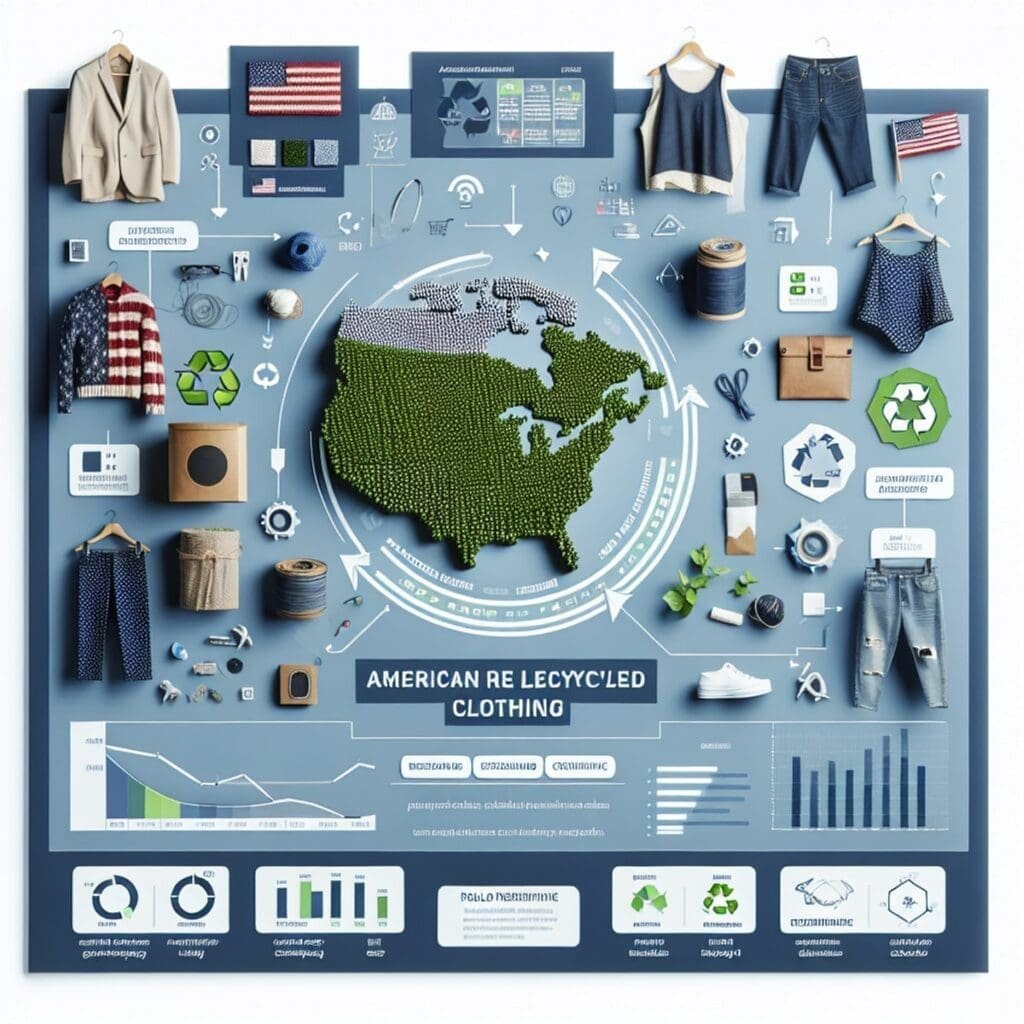
- American recycled clothing plays a significant role in reducing the environmental impact of the fashion industry by diverting textile waste from landfills and minimizing the need for new raw materials.
- By supporting these eco-friendly fashion choices, you contribute to promoting a circular economy model where resources are reused and recycled, thus reducing overall waste and energy consumption.
Ensuring Legitimacy: Quality Control and Ethical Production Practices
When it comes to American recycled clothing, ensuring legitimacy involves maintaining high standards of quality and adhering to ethical production practices throughout the entire manufacturing process. Here are some key points to consider:
1. Quality Control
American recycled clothing brands understand the importance of delivering high-quality products to their customers. To ensure this, they implement rigorous quality control measures at every stage of production. This includes thorough inspections of materials, careful craftsmanship during manufacturing, and comprehensive testing for durability and performance.
By prioritizing quality control, these brands strive to provide clothing items that not only meet customer expectations but also stand the test of time.
2. Ethical Production Practices
Another crucial aspect of legitimacy in the American recycled clothing industry is adhering to ethical production practices. Brands that prioritize sustainability also recognize the need for fair working conditions and wages for their employees. They ensure that workers involved in the manufacturing process are treated with respect and provided safe working environments.
This commitment to ethical practices helps create a positive impact on both people and the planet.
3. Certifications and Guidelines
To further verify their ethical and sustainable practices, American recycled clothing brands may obtain certifications or follow guidelines established by reputable organizations or industry associations. For example, they may seek certifications such as Fair Trade or Global Organic Textile Standard (GOTS) to demonstrate their commitment to fair labor practices and environmentally friendly production methods.
Adhering to these certifications or guidelines adds an extra layer of credibility and transparency to the brand’s legitimacy.
By maintaining high standards of quality control, adhering to ethical production practices, and obtaining relevant certifications or following guidelines, American recycled clothing brands demonstrate their commitment to sustainability and legitimacy. These factors contribute to building trust with consumers who prioritize transparency and social responsibility in their fashion choices.
The Role of Consumer Perception: Reviews and Trustworthiness
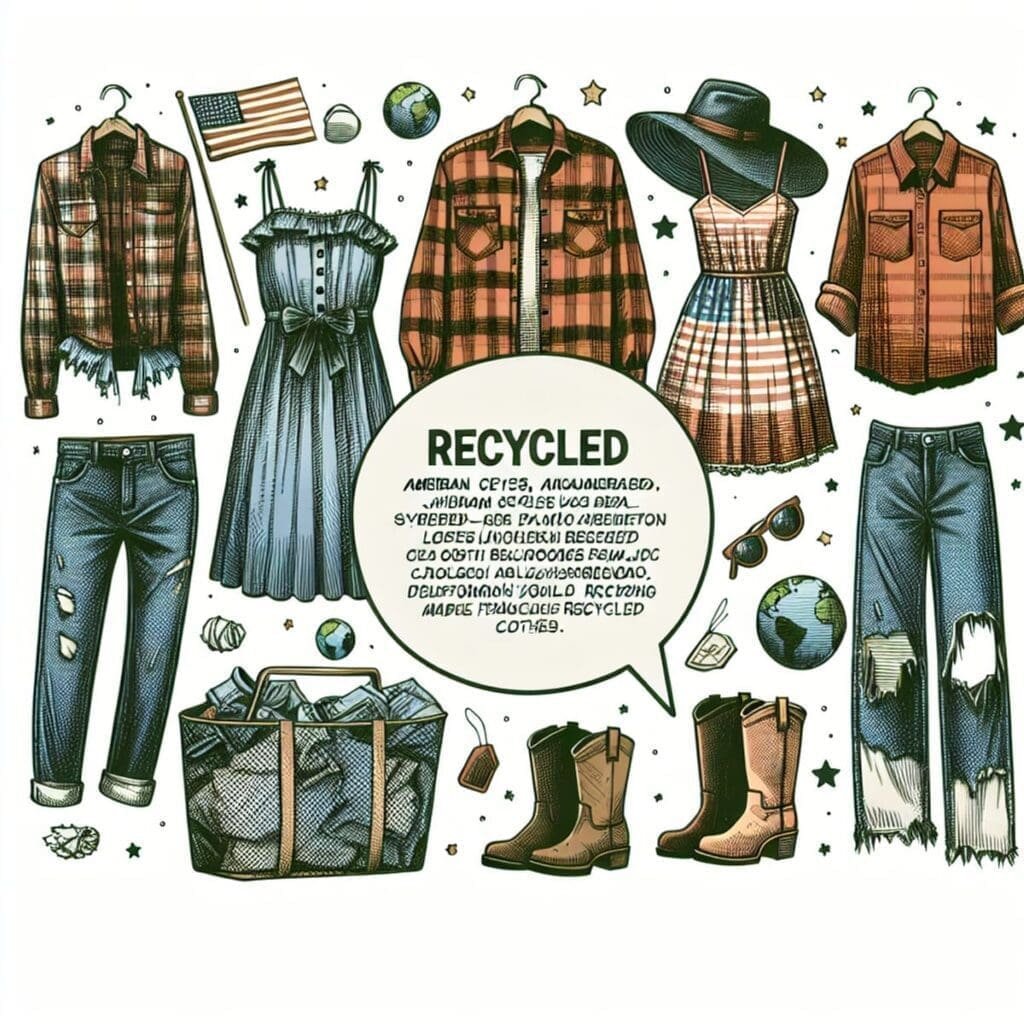
How Customer Reviews Shape the Reputation of American Recycled Clothing Brands
Customer reviews have a significant impact on how American recycled clothing brands are perceived by consumers. These reviews serve as social proof, providing potential customers with insights into the quality and reliability of the products and services offered by these brands.
- Positive reviews can help build trust and credibility for American recycled clothing brands. When customers share their positive experiences with a brand, it reassures others that they too can expect similar positive outcomes.
- On the other hand, negative reviews can harm the reputation of these brands. They highlight areas where improvements are needed and may discourage potential customers from making a purchase.
The Importance of Authentic and Transparent Review Platforms in Sustainable Fashion
In the context of sustainable fashion, it is crucial to have authentic and transparent review platforms that provide accurate information about American recycled clothing brands. Here’s why:
- Empowering Consumers: Authentic review platforms empower consumers to make informed choices based on real experiences shared by others. This knowledge allows them to support brands that align with their values and avoid those that do not.
- Promoting Accountability: Transparent review platforms hold American recycled clothing brands accountable for their actions. Brands are more likely to prioritize ethical practices when they know that consumers have a platform to voice their opinions and concerns.
- Building Trust: Genuine feedback from customers fosters trust in the sustainable fashion industry. When consumers see that brands are actively listening to their feedback and taking steps to address any issues raised, it strengthens the belief that these brands are committed to making a positive impact.
It is important for both consumers and brands to recognize the role of customer reviews in shaping the reputation and trustworthiness of American recycled clothing brands. By leveraging the power of authentic feedback, we can collectively drive positive change towards a more sustainable future in fashion.
Case Study: Analyzing the Legitimacy Framework of a Leading American Recycled Clothing Brand
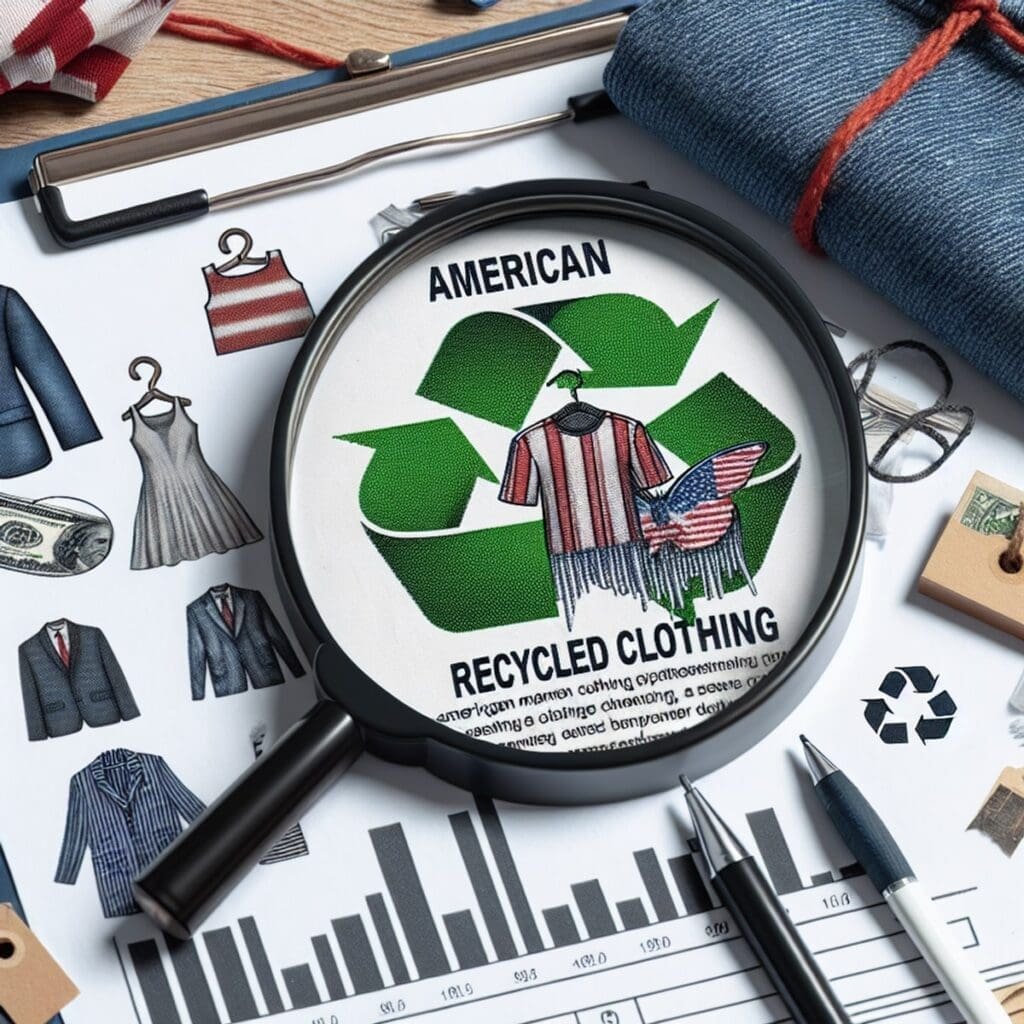
American Recycled Clothing Co.: A Sustainable Fashion Pioneer
American Recycled Clothing Co. stands as a shining example of a leading brand in the American recycled clothing industry. Let’s take an in-depth look at their approach to sustainability, examining various aspects such as material sourcing strategies, production methods, product durability, and customer satisfaction based on available reviews.
Material Sourcing Strategies
American Recycled Clothing Co. places a strong emphasis on sourcing materials from post-consumer textile waste. By repurposing discarded garments and fabrics, they effectively reduce waste and contribute to a more circular economy model. The company is known for its meticulous sorting and cleaning processes, ensuring that only high-quality materials are used in their clothing items.
Production Methods
In terms of production methods, American Recycled Clothing Co. takes pride in prioritizing ethical practices. They maintain fair working conditions throughout their supply chain, ensuring that workers are treated with respect and earn fair wages. This commitment to ethical manufacturing extends beyond their own facilities – they also collaborate with reputable manufacturers who share the same values.
Product Durability
One key aspect that sets American Recycled Clothing Co. apart is the durability of their products. Through careful refurbishing and repair processes, they ensure that each item is of high quality and built to last. Customers consistently report positive experiences with the longevity of their clothing items, praising the brand’s commitment to durability.
Customer Satisfaction
Customer reviews play a crucial role in assessing the legitimacy of any brand, and American Recycled Clothing Co. excels in this regard. Positive feedback regarding the quality, fit, and unique designs offered by the brand further solidifies its reputation as a trustworthy choice for sustainable fashion. Authentic and transparent review platforms provide customers with valuable insights into the brand’s products and practices.
American Recycled Clothing Co.’s comprehensive approach to sustainability, from material sourcing to production methods and product durability, demonstrates their commitment to providing legitimate and reliable options for individuals seeking sustainable and ethically produced clothing items. By analyzing the framework of this leading brand, we can gain valuable insights into the key factors that contribute to the legitimacy of American recycled clothing as a whole.
Challenges and Opportunities for the American Recycled Clothing Industry
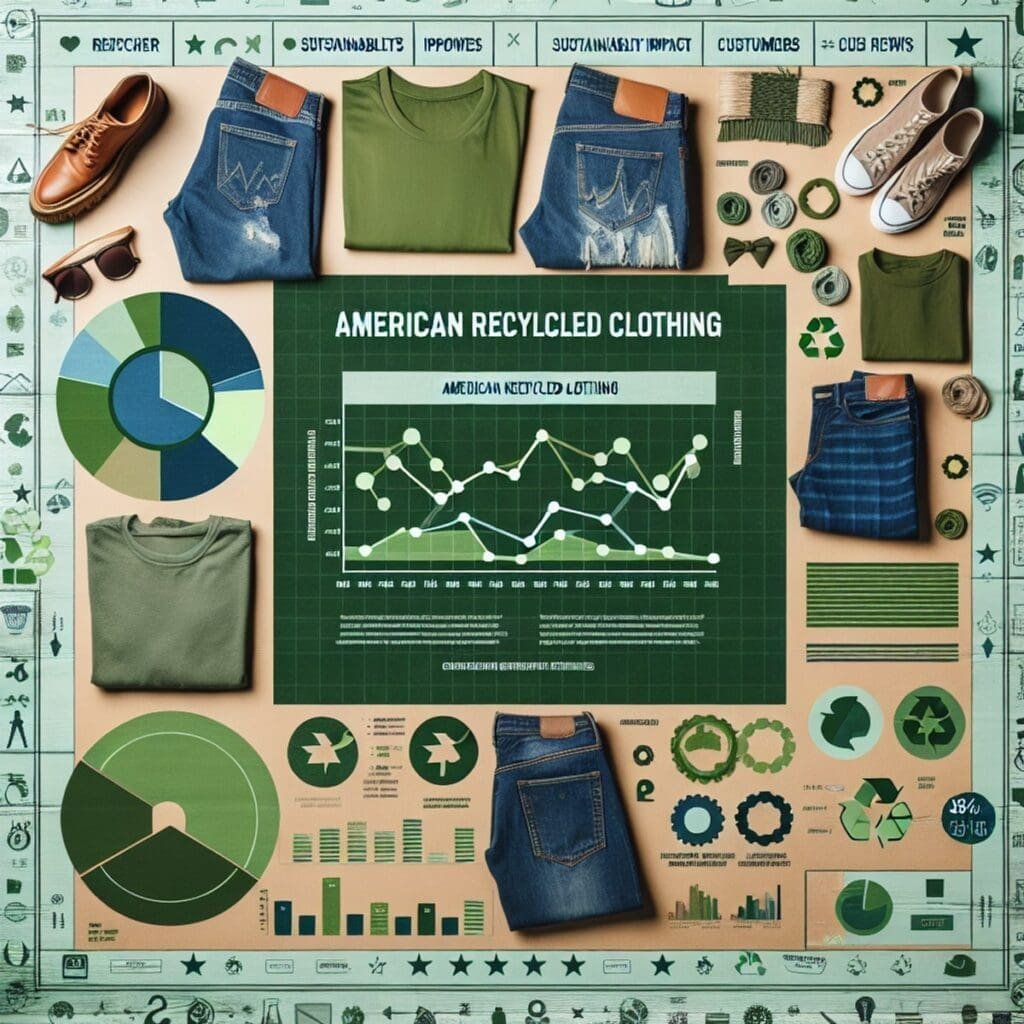
The American recycled clothing industry faces both challenges and opportunities as it continues to grow and evolve in the sustainable fashion landscape. It is essential to address these factors to drive positive change and foster a more robust industry.
1. Continuous Improvement
There is a pressing need for ongoing enhancements in supply chain transparency, ensuring that every stage of the production process aligns with sustainable practices. This includes transparent sourcing of materials, ethical manufacturing, and clear communication of these efforts to consumers.
2. Design Innovation
Embracing innovation in design is crucial for the industry’s growth. Brands should strive to offer a diverse range of styles and trends that cater to varying consumer preferences, thereby dispelling the misconception that recycled clothing lacks fashionable options.
3. Affordability Concerns
One significant challenge lies in making sustainable fashion accessible to a broader audience. To overcome this hurdle, brands can explore strategies for cost-efficient manufacturing processes without compromising on quality or ethical standards.
4. Collaborations and Partnerships
Forming alliances with other stakeholders, such as designers, manufacturers, and retailers, can foster a more cohesive approach towards sustainability. Collaborations can lead to shared resources, knowledge exchange, and collective efforts to drive meaningful change within the industry.
By addressing these challenges head-on and capitalizing on the opportunities they present, the American recycled clothing industry can further solidify its position as a driving force in sustainable fashion.
Conclusion
In conclusion, it is crucial to support truly legitimate brands in our efforts to create a more sustainable fashion industry. As consumers, we have the power to make a difference through our choices.
I encourage you to be mindful and well-informed when evaluating American recycled clothing products. Look beyond just recycling claims and consider factors such as durability, certifications, and overall brand values. By doing so, we can ensure that our purchases align with our sustainability goals and contribute towards a better future for both the environment and garment workers.
FAQs (Frequently Asked Questions)
What is American Recycled Clothing (ARC)?
American Recycled Clothing (ARC) is a company that specializes in producing clothing made from recycled materials. They aim to reduce textile waste and promote sustainability in the fashion industry.
How does ARC source its materials?
ARC sources its materials primarily from post-consumer textile waste, including discarded clothing and fabric scraps. They may also utilize pre-consumer waste from manufacturing processes.
Are ARC’s clothing items truly made from recycled materials?
Yes, ARC’s clothing items are made from verified recycled materials. They prioritize transparency in their sourcing and production processes to ensure the authenticity of their products.
What types of materials does ARC use for its clothing?
ARC uses a variety of recycled materials, including recycled cotton, polyester, nylon, and other synthetic fibers. They may also incorporate innovative materials such as recycled ocean plastic or recycled wool.
How does ARC ensure the quality of its recycled clothing?
ARC maintains strict quality control measures throughout the manufacturing process. They carefully inspect materials, monitor production standards, and conduct quality tests to ensure that their clothing meets high standards of durability and comfort.
What are the environmental benefits of purchasing from ARC?
By purchasing from ARC, consumers contribute to reducing the demand for virgin materials and minimizing the environmental impact of textile production. ARC helps divert textile waste from landfills and conserves resources by recycling materials.
Does ARC follow ethical labor practices?
ARC is committed to ethical manufacturing practices and ensures that its production facilities comply with labor laws and regulations. They may also prioritize partnerships with factories that provide fair wages and safe working conditions for employees.
Does ARC offer recycling programs for old clothing?
Some sustainable fashion brands, including ARC, offer recycling programs where customers can send back their old clothing for recycling. ARC may provide instructions on how to participate in their recycling initiatives on their website or through customer service.
Where can I purchase ARC clothing?
ARC clothing may be available for purchase on their official website, as well as through select retailers and online marketplaces. Customers can check ARC’s website for information on current product offerings and availability.
Is ARC a reputable and trustworthy company?
While individual experiences may vary, ARC is generally regarded as a reputable company within the sustainable fashion industry. They have received positive reviews for their commitment to sustainability, transparency, and quality craftsmanship.
- This FAQ aims to provide detailed information about American Recycled Clothing (ARC), including its sourcing practices, environmental initiatives, product quality, and ethical standards. Consumers interested in sustainable fashion can refer to this FAQ to learn more about ARC and its offerings.
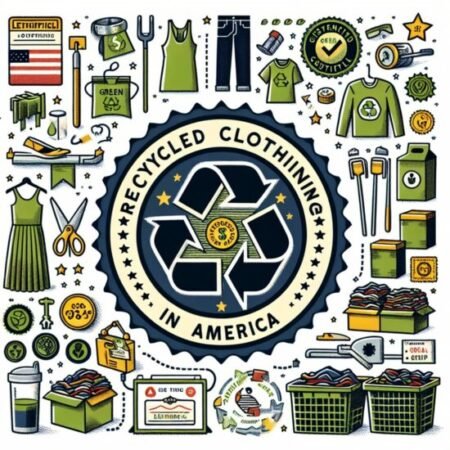


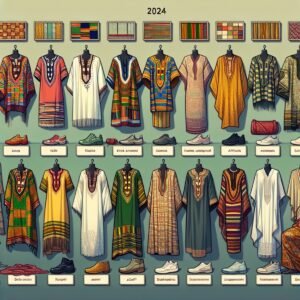



4 thoughts on “Is American Recycled Clothing Legit? A Detailed Look”